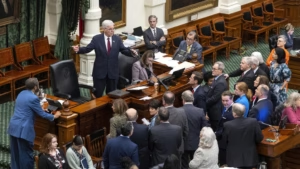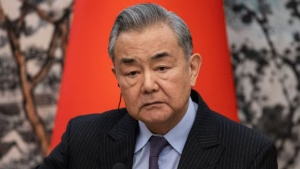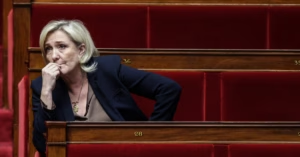One might assume that the issue of money would no longer be a concern in the coalition negotiations between the center-right Christian Democrats (CDU/CSU) and the center-left Social Democrats (SPD). Just recently, they managed to get a trillion-euro debt package approved in parliament.
However, this money is specifically allocated for defense, infrastructure, and climate protection. It can only be used as an addition to the regular federal budget, which still has a gap of at least €100 billion over the projected four-year term of the new government.
The SPD represents the working class and wants to increase taxes on high earners, while the CDU/CSU is opposed to this idea. Currently, 19 senior politicians from all three parties are conducting negotiations based on the findings of 16 working groups, who managed to find some common ground but also identified contentious issues.
Frictions exist in areas such as immigration, taxes, pensions, and energy policy. Many promises were made during the election campaign, ranging from tax cuts and increased pensions for mothers to free lunches in daycare centers and schools.
The negotiations between the CDU/CSU and SPD are being conducted behind closed doors, with finances being a central concern. CDU leader and chancellor candidate Friedrich Merz wants a complete review of the budget, particularly social spending, which accounts for around 45% of the budget in 2024, or a total of €476 billion.
Alongside the talks, the focus has also turned to development aid as a possible area for cuts. The CDU and CSU propose reducing development spending and integrating the Federal Ministry for Economic Cooperation and Development into the Foreign Office. They argue that this would better align political, security, and development policies, as well as promote foreign trade.
On the other hand, the SPD wants to retain the development ministry and increase development spending according to the ODA quota, which requires 0.7% of Germany’s GDP to be spent on development aid.
Critical voices from churches and NGOs have emerged, arguing that cutting development spending would weaken international partnerships and undermine Germany’s values and interests. They emphasize the importance of development cooperation as an investment in peace, justice, and a common future.
While you’re here, subscribe to our weekly email newsletter Berlin Briefing, where DW editors summarize the latest developments in German politics and society.
Source: https://www.dw.com/en/germany-s-development-aid-on-the-chopping-block/a-72098362?maca=en-rss-en-all-1573-rdf








